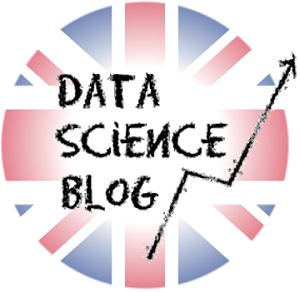Data Scientist: Rock the Tech World
It’s almost 2020! Are you a data Rockstar or a laggard?
IDC agrees to the fact that the global data, 33 zettabytes in 2018 is predicted to grow to 175 zettabytes by 2025. That’s like ten times bigger the amount of data seen in 2017.
Isn’t this an exciting analysis?
Hold on! Are all the industries set for a digitally transformed future?
A digital transformed future is an opportunity of historic proportions. The way data is consumed today changes the way we work, live, and play. Businesses across the globe are now using data to transform themselves to adapt to these changes, become agile, improve customer experience, and to introduce new business models.
With the full dependency on online channels, connectivity with friends and family around the world has increased the consumption of data. Today, the entire economy is reliant on data. Without data, you’re lost.
Leverage the benefits of the data era
At the outset, with not many big data industries to be found, we can still agree to the fact that the knowledge for data skills is still early for professionals in the big data realm.
- Big data assisting the humanitarian aid
-
- Case study: During a disaster
Be it natural or conflict-driven – if the response is driven quickly, it minimizes problems that are predicted to happen. In such instances, big data could be of great help in helping improve the responses of the aid organizations.
Data scientists can easily use analytics and algorithms to provide actionable insights that can be used during emergencies to identify patterns in the data that is generated by online connected devices or from other related sources.
During a 2015 refugee crisis in Germany, the Sweden Migration Board saw 10,000 asylum seekers every week up from 2,500 asylum seekers they saw in a month. A critical situation where other organizations could have faced challenges in dealing with the problem. However, with the help of big data this agency could cope up with the challenges. The challenges were addressed by ensuring extra staff was hired and of securing housing started early. Big data was of aid to this agency, meaning since they were users of this the preprocessing technology for quite a long time, the predictions were given well ahead of time.
Earlier the results were not easy to extract due to obstruction such as not finding the relevant data. However, now with the launch of open data initiatives, the process has become easy.
- Tapping into talents of data scientist
The Defence Science and Technology Laboratory (Dstl) along with other government partners launched “The Data Science Challenge.” This is done to harness the skills of data science professionals, to check their capability of tackling real-world problems people face daily.
The challenge is part of a wider program set out majorly in the Defence Innovation Initiative.
It is an open data science challenge that welcome entrants from all facets of background and specialization to demonstrate their skills. The challenge is to acknowledge that the best of minds need not necessarily be the ones that work for you.
- The challenge comprises of two competitions each offering an award of £40,000:
- First competition – this analyzes the ability to analyze data that is in documents i.e. media reports. This helps the data scientist have a deeper understanding of a political situation like it occurs for those on the ground level and even for those assisting it from afar.
- Second competition – the second test involves creating possible ways to detect and classify vehicles like buses, cars, and motorbikes easily from aerial imagery. A solution to be used for aiding the safe journey of vehicles going through conflict zones.
What makes the data world significant?
In all aspects, the upshot of the paradigm shift is that data has become a critical influencer in businesses as well as our lives. Internet of things (IoT) and embedded devices are already pacing their way in boosting the big data world.
Some great key findings based on research by IDC: –
- 75% of the population that interacts with data is estimated to stay connected by 2025.
- The number of embedded devices that can be found on driverless cars, manufacturing floors, and smart buildings is estimated to grow from less than one per person to more than four in the next decade.
- In 2025, the amount of real-time data created in the data sphere is estimated to be over 25% while IoT real-time data will be more than 95%.
With the data science industry becoming the top-end of the pyramid, a certified data scientist plays an imperative role today.
In recent times, it is seen that big data has emerged to be the célèbre in the tech industry, generating several job opportunities.
What do you consider yourself to be today?
Defining a data scientist is tough and finding one is tougher!




Leave a Reply
Want to join the discussion?Feel free to contribute!